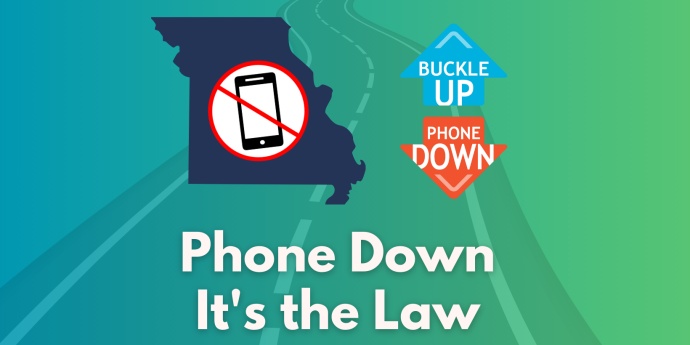Lorem ipsum dolor sit amet, consectetur adipiscing elit. Proin tincidunt nunc lorem, nec faucibus mi facilisis eget. Mauris laoreet, nisl id faucibus pellentesque, mi mi tempor enim, sit amet interdum felis nibh a leo.

DEALING WITH INSURANCE COMPANIES AFTER AN AUTO ACCIDENT:
Being involved in an auto accident is stressful enough, but navigating the insurance claims process afterward can add another layer of frustration. Whether you’re dealing with your own insurer or the at-fault party’s insurance company, knowing how to handle the situation can make a big difference in the outcome of your claim. Here’s a quick reference general guide to things that will help you maximize your claim against an insurance company after an accident.
- Immediately Report the Accident As soon as you’re in a safe place, it’s important to contact your insurance (or the other driver’s insurance) company to report the accident. Most insurers have specific timeframes for filing claims, and failing to report an accident promptly could result in delays or denial of your claim.
- Provide details: When reporting the accident, stick to the facts. Be honest and clear about the circumstances but avoid giving opinions or admitting fault.
- File a police report: If the authorities are called to the scene, be sure to obtain a copy of the police report, as this can be helpful when filing a claim.
- Understand Your Coverage Before you dive deeper into the claims process, make sure you understand the details of your insurance policy. What does your coverage include? What are your limits?
- Liability coverage typically covers damage or injuries to others if you are at fault.
- Collision coverage covers repairs to your own vehicle, regardless of who is at fault.
- Personal Injury Protection (PIP) or Medical Payments (MedPay) can help cover medical expenses if you’re injured, regardless of fault.
Understanding your coverage will help you know what to expect when it comes to claim payouts and ensure you don’t get caught off guard by gaps in your policy.
- Document the Accident Thoroughly The more evidence you can provide, the better your chances of getting a fair settlement. Documentation is critical when dealing with insurance companies.
- Take photos of the scene: Capture images of the damage to all vehicles involved, the location, weather conditions, traffic signals, and any injuries. These photos will serve as essential evidence.
- Collect witness statements: If there were any witnesses, get their contact information and a statement of what they saw. This can help corroborate your account of the accident.
- Medical records: Keep all documentation related to your injuries, including doctor’s visits, treatments, prescriptions, and hospital bills. If you miss work because of your injuries, document your lost wages.
- Stay Organized Keep all correspondence with the insurance company organized and in one place. This includes letters, emails, phone call notes, and any forms you’ve filled out. Being organized will help you avoid confusion and will serve as a reference in case there are discrepancies or delays.
- Request claim numbers from the insurer for easy tracking.
- Write down the names and contact details of the insurance representatives you speak to, and note the details of your conversation.
- Be Cautious About Your Statements One of the most critical things to keep in mind when dealing with insurance companies is that everything you say can be used against you. While it’s important to be truthful, be mindful that some insurance adjusters may attempt to pressure you into providing information that could hurt your case.
- Avoid admitting fault: Even if you think you may have been partially responsible, avoid making statements that suggest you were at fault. Let the insurance companies and legal teams determine liability.
- Don’t settle too quickly: Insurance companies may offer you a quick settlement, but it’s often much less than what you’re entitled to, especially if you’re still receiving medical treatment or if future medical costs are uncertain. Take the time to fully evaluate your injuries and expenses before agreeing to anything.
- Negotiating with the Insurance Adjuster Once the insurance adjuster has assessed the damage and your injuries, they will likely make an initial offer. Don’t be afraid to negotiate if the offer doesn’t reflect the full extent of your damages.
- Know your rights: Understand the value of your claim. You may need to seek advice from an attorney or a professional who can help you assess the worth of your claim.
- Counter-offer: If the initial offer is too low, make a counteroffer that reflects your medical costs, lost wages, and pain and suffering.
- Stay patient: Negotiation may take time, but don’t rush into a settlement. The insurer may offer more as you persist.
- Consider Hiring an Attorney If you’re having trouble negotiating with the insurance company or if your case is complex, it might be wise to consult with an experienced personal injury attorney. An attorney can help ensure that your rights are protected and can assist with:
- Fighting unfair settlement offers
- Gathering and presenting evidence
- Navigating the legal process if the case goes to court
Many personal injury lawyers work on a contingency fee basis, meaning they don’t get paid unless you win the case, which makes hiring one more affordable.
- Finalizing the Claim Once an agreement is reached and your claim is settled, ensure that you receive all compensation owed to you. Make sure the final settlement covers your:
- Medical bills
- Lost wages
- Property damage
- Pain and suffering
If your injuries are ongoing, consider future medical costs when negotiating the settlement. If you’re unsure about the adequacy of a settlement, consult an attorney before accepting it.
Remember, you don’t have to go through this process alone—help is available. Our experienced attorneys can assist you in navigating this process so you can focus on recovery. Call us today for a free consultation.
Lorem ipsum dolor sit amet, consectetur adipiscing elit. Proin tincidunt nunc lorem, nec faucibus mi facilisis eget. Mauris laoreet, nisl id faucibus pellentesque, mi mi tempor enim, sit amet interdum felis nibh a leo.
If you’ve been stopped in Missouri while operating your vehicle under the influence, you may be facing a “driving while intoxicated” (DWI) charge. A similar term you may have heard is “driving under the influence” (DUI). Since the phrases are so similar, you may wonder...
A speeding ticket is a common penalty for drivers who exceed allowed limits. To help you avoid an inconvenient expense and potential penalties, here’s some information regarding speed laws in the state. What Are Missouri’s Laws About Car Speed? Missouri has several statewide speeding regulations, the...
In the state of Missouri, possessing a controlled substance can be a misdemeanor or felony. The precise charges and potential penalties they carry depend on the circumstances of the arrest. If you’re facing drug possession charges and are wondering what may be at stake, this guide should...
Each U.S. state has its own traffic laws to ensure its citizens drive responsibly and stay as safe as possible on the road. In Missouri, depending on the infraction, violators are subject to tickets, criminal charges, or even jail time. To help you avoid any offenses,...


